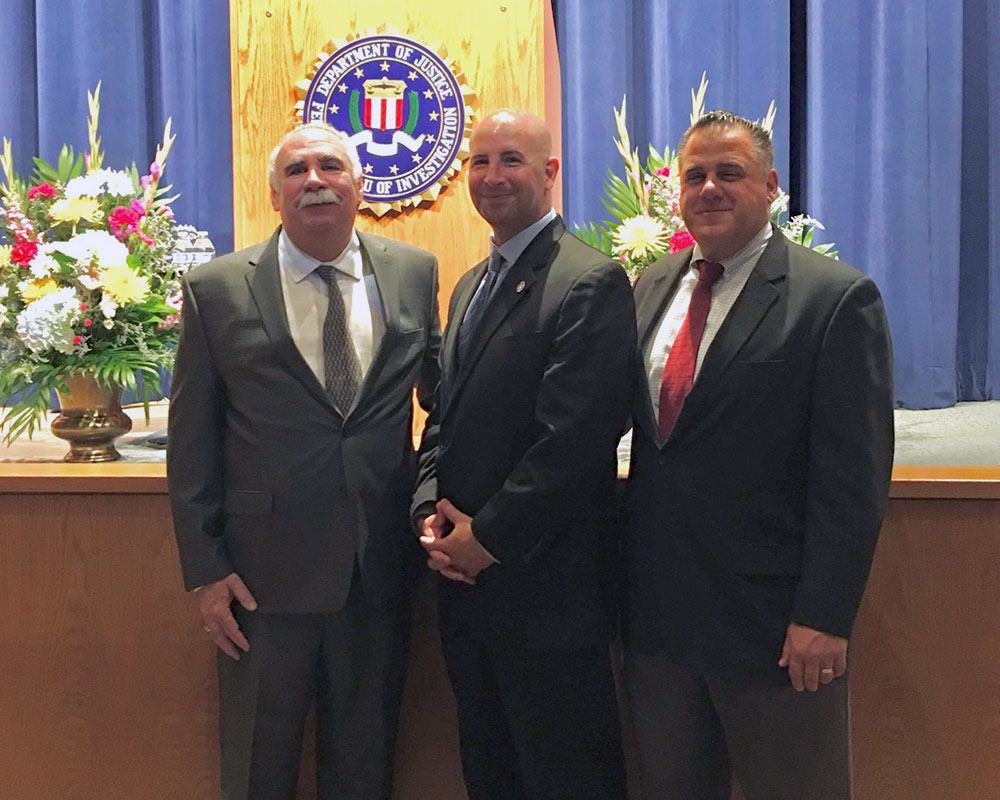Haverhill residents are invited to the swearing in of veteran Haverhill Police Officer Robert P. Pistone as the city’s next police chief this Friday morning in City Hall and a public meet and greet Saturday near downtown.
Pistone, who was appointed by Mayor James J. Fiorentini to succeed Chief Alan R. DeNaro, takes the oath of office Friday, July 16, 9:30 a.m., in the Nicholas J. Ross Auditorium. Pistone and Fiorentini are also planning to visit with residents Saturday, July 17, at 9 a.m., at Jacqueline’s Convenience Store, 143 Locust St., across the street from St. James Church.
The new police chief also takes over from interim Chief Anthony L. Haugh, a former Haverhill deputy who came out of retirement to head the department for a few weeks.
Pistone was chosen after a nationwide search that included nearly 30 applicants from across the country as well as internal and local candidates. A 10-person committee of local people interviewed the top five candidates and passed on three finalists. Pistone was selected after a final interview with Fiorentini, New Hampshire-based Municipal Resources President Alan Gould and former Hampton, N.H., police Chief William Wrenn, a Haverhill native.
Pistone began his law enforcement career as a reserve police officer in 1997 for the Town of Groveland. He became a Haverhill patrolman in 2000 and moved up the ranks—promoted to sergeant in 2007, administrative sergeant in 2009, administrative lieutenant in 2011 and captain in 2015. He was deputized as an FBI Task Force officer and U.S. Marshals state Fugitive Task Force Officer between 2014 and 2018.
The new chief lists among his achievements, development of community education, support and startup groups in an effort to combat the heroin epidemic when he served as detective commander; implemented a Behavioral Response Unit where officers and mental health clinicians work to deescalate those in times of mental health crises and provide follow-up support; implemented a successful police/youth dialogue with community leaders and inner-city youth; and securing more than $2 million dollars in multiple grants for improving the department’s radio system, remodeling the dispatch center, recruiting and hiring civilian dispatchers and acquiring new equipment and extra staffing for community policing.
